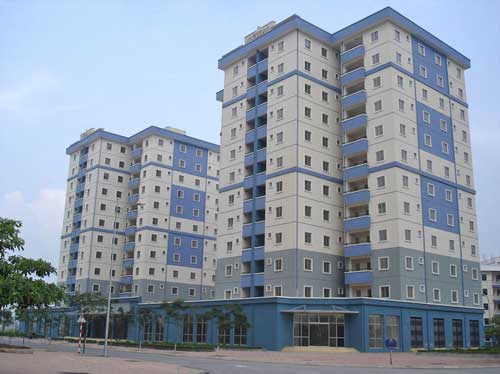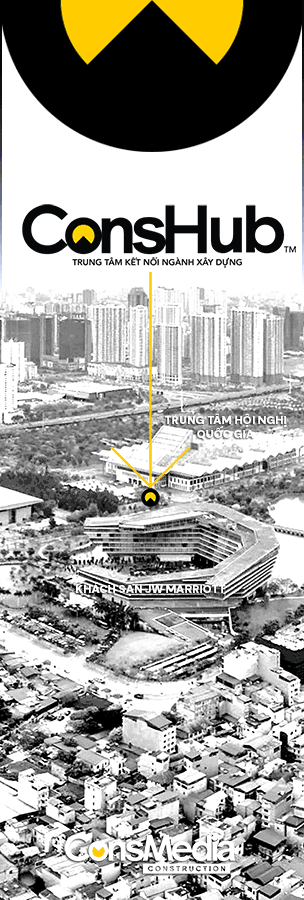The Ministry of Construction's decision to ban business operations from residential apartments has created many difficulties for the enterprises, many of which are small and medium sized.
Rental prices in office buildings are higher than those for residential apartments.
These enterprises have chosen to rent apartments for their business operations instead of building head offices on their own because they lack investment capital, said Nguyen Trung Hoa, a businessman.
"If the ministry enforces the decisions, it will create many difficulties for enterprises," said Hoa.  Han Manh Tien, chairman of the Viet Nam Association of Corporate Directors (VACD), agreed, saying that forbidding enterprises from using residential apartments as offices would be difficult in the current economic downturn.
Han Manh Tien, chairman of the Viet Nam Association of Corporate Directors (VACD), agreed, saying that forbidding enterprises from using residential apartments as offices would be difficult in the current economic downturn.
Rental prices in office buildings are higher than those for residential apartments. For example, a 100sq.m apartment costs around US$1,000 a month, or $10 per sq.m, which is considerably cheaper than the lowest rate of $20 per sq.m in office buildings, according to Nguyen Thanh Hung, director of Hung Ha Joint Stock Co.
In addition to the increased costs for office space, companies will have to spend hundreds of millions of dong to move to new offices, including transportation costs, equipment installation, furnishings, among others.
Departing tenants based in residential apartments will also have to pay fines for ending their long-term rental contracts too soon.
Tien has suggested the ministry should only apply the ban on enterprises operating in specific sectors, such as health clinics, that are noisy and damage the living environment. Businesses involved in services and transactions should be permitted to continue as they are, he said.
Just because some companies make a lot of noise does not mean that all enterprises at residential apartments should close their doors, said Nguyen Xuan Dung, CEO of NIIT Ha Noi, a technology and information training centre.
The Ministry of Construction, however, said it was illegal to conduct business activities in apartments which were designed for residential use only. The ministry said business offices could have a negative impact on building residents.
Nguyen Manh Ha, director of the Construction Ministry's Housing and Real Estate Market Management Department, said the ban is necessary.
"The ministry can't sacrifice the well-being of larger residential communities for the benefit of a small number of businesses," he said.
Last month, the ministry announced that provincial People's Committees must submit a report detailing the misuse of apartment buildings in their localities along with proposals for dealing with this issue in the coming time.
In November, the Ministry of Construction issued a decision to ban the use of residential apartments as offices. Under the decision, solutions needed to be found to prevent businesses, such as shops, warehouses and production facilities, from affecting the daily lives of people in residential apartment communities.
- Ha Noi master plan under scrutiny
- Hanoi’s old quarter is uneasy to decide what needs upgrading
- Controls needed for FDI projects using domestic capital
- SIG looks for its place in Danang’s sun
- Foreign firms dominate property consulting service
- Residents' co-operation vital in efforts to preserve Old Quarter
- Hanoi to open citadel relic site to public
- Hanoi home prices out of reach
- Land heats up in Dong Nai, cools down in HCM City
- City department calls for strict control over State-owned land




























